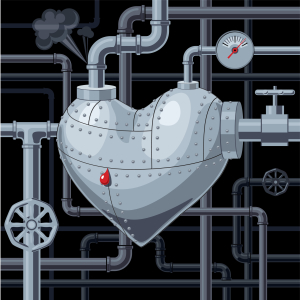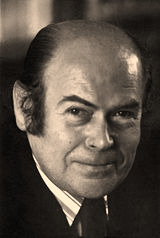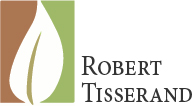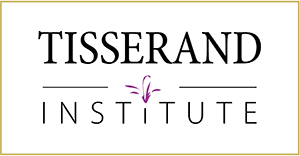 The status quo, the widely believed “wisdom” of the day, is always difficult to change, however illogical or wrong it may be. Blood letting had been widely used for 1,500 years before physicians figured out that it was not, after all, the ideal go-to therapy for all ills. In that context, 36 years is not a long time, but that’s how long the aromatherapy community has been under the illusion that oils of rosemary, hyssop, sage and thyme should not be used for people with high blood pressure.
The status quo, the widely believed “wisdom” of the day, is always difficult to change, however illogical or wrong it may be. Blood letting had been widely used for 1,500 years before physicians figured out that it was not, after all, the ideal go-to therapy for all ills. In that context, 36 years is not a long time, but that’s how long the aromatherapy community has been under the illusion that oils of rosemary, hyssop, sage and thyme should not be used for people with high blood pressure.
In 1964, Dr Jean Valnet’s book Aromathérapie was published. It was a hugely important publication in the development of aromatherapy, and it had a tremendous impact on my own aromatherapy career. However, the quantity and quality of essential oil research available in the early 1960s was extremely poor. There simply wasn’t very much to go on.
In his book, Valnet lists the above four essential oils as “hypertenseur”, and for each one he gives two references: Caujolle, and Cazal. However, the 1944 Caujolle paper he cites is actually about essential oils of lavender, lavandin and spike lavender, all of which were reported to produce a brief reduction in blood pressure after intravenous injection into dogs. None of the other four oils are mentioned, so clearly, this reference was a mistake.
Caujolle and Franck published two other papers, both in 1945, that Valnet might have in fact be referring to. One was about hyssop oil. Injected iv into dogs, it caused an initial drop in blood pressure and then (since the dose was high enough to induce seizures) blood pressure suddenly increased as the seizures came on, and decreased again when they subsided. This spike in blood pressure was considered to be a consequence of the muscular contractions related to the seizures. Unless used in convulsant doses, hyssop oil is in fact hypotensive. The other paper was about clary sage oil, not sage oil. Injected iv into dogs, it caused a slight increase in blood pressure. This paper also noted that sage oil usually caused blood pressure to reduce. The other reference given by Valnet (Cazal) was a thesis from 1943, which I have not been able to find.

Dr Jean Valnet
Valnet’s contraindication in Aromathérapie is under “usage interne” – internal use – but he does not give a contraindication for “usage externe”. So, even according to Valnet, massage with any of these four oils would NOT be contraindicated in high blood pressure.
In spite of all of the above, Valnet’s advice has been (a) assumed to apply to all uses of these four oils, and (b) repeated in almost all aromatherapy texts since, at least the ones that give safety advice for hypertension. And other oils have been added to the list over time. However, if you look at the research the surprising conclusion is that there is no evidence that any of the contraindicated essential oils – whether listed by Valnet or anyone else – raises blood pressure. In fact most of them reduce it.
In: Essential Oils and Hypertension – is There a Problem? I explain why I believe that there is no case for contraindicating any essential oil in someone with high blood pressure. As well as closely examining the evidence above, I also refer to more recent research, which confirms that the four “Valnet oils” present no risk. The lack of compelling evidence is reason enough to let go of this chimera. There’s also the fact that aromatherapists have plenty of legal challenges to deal with already, and it makes no sense to add to this burden by coming up with restrictions that are scientifically unsound, and that are based on a mistake made in a book in 1964.


Dear Robert,
Thanks for the info about the above 4 oils and their lack of contribution to hypersensitivity. I have used Rosemary on people with many blood pressure conditions with positive ressults.
Best,
Elizabeth
I wonder if the EOs are ADAPTOGENIC; i.e. they lift you up if you need uplifting and calm you down if you need relaxing. I found that to be the case with my patients when it comes to peppermint, which is normally considered an uplifting scent (for some it is relaxing). Can it be that the oils would relax someone with high BP, and uplift people with low BP? Of course, one should always consult with a trained health professional when undergoing EO therapy. Where there is potential for healing, there’s also potential for harm.
I have not seen any hard evidence of adaptogenic action with essential oils, though it’s certainly feasible. But also, we need to be careful how we apply general terms such as “stimulating”. The evidence shows that peppermint oil both increases alertness, and reduces blood pressure. This is not adaptogenesis, nor is it a contradiction, it’s simply that alertness and blood pressure are controlled by different parts of our nervous system, and the same essential oil can be both “stimulating” and “depressing” at the same time, but to different receptor sites or neurochemical pathways.
As synchronicity would have it, I was examining the latest research and updating the “Safe and Smart” advice on my website. This paragraph:
“High or Low Blood Pressure: There are no scientifically verified trials published, following the external application of essential oils. There are also no proven cases of anyone that has suffered ill effects from escalation of blood pressure caused by aromatherapy. Generally, an aromatherapy massage will decrease blood pressure that is high due to stress.” will remain intact.
Thanks Robert. I’ve also been disturbed about the plethora of misinformation on the web and will tackle a similar attempt to dispute some of it in my own blog and web pages. Eventually, we can only hope this misinformation will be so dilute as to have no influence.
Once again, thank you for enlightening us. I really enjoy the “Fact or Crap?” information you consistently share in your blog and articles!
As ever, very interesting! I’d be interested if Elizabeth Jones could clarify her comment. I assume hypersensitivity was a typo and should read hypertension? What kind of blood pressure conditions does she mean (hypo or hyper) and what does she mean by “positive” results – an increase, a decrease or no change in blood pressure? And how does she know?! Elizabeth, I’m just trying to understand this – am not saying you’re wrong, it’s just not clear what you mean.
Dear Robert. Thank you for this article. It is indeed unlikely that EO of Thyme increases blood pressure. I have used this EO externally for calcifications, such as bone spurs. I was taught it had properties of lysis in this instance. If it has those properties would it not also be beneficial for atherosclerosis?
Just my two cents!
greetings
Andrea
Andrea, thank you for your comment. Lysis means the breaking down (rupturing) of a cell. Thyme oil can have this effect on bacteria, but there’s no evidence that it breaks down bone cells. In fact thymol, the main constituent of most thyme oils, has the opposite effect, strengthening bone by inhibiting the process that breaks down bone cells. Good in osteoporosis.
Atherosclerosis – hardening of arteries – I’m not aware of any research suggesting that thyme oil would be helpful.
Dear Robert,
Could you please clarify whether Cypress essential oil is safe postnatally with women who are taking hypotensive medication as the textbooks mention it as a hypertensive essential oil?
Thank you,
Ingrid
Ingrid – there is certainly no evidence that cypress essential oil raises blood pressure. Nor is there any reason to suspect that it might, in my opinion.
Dear Robert,
How are you? Glad to access your website and happy to see the distinguished aromatherapists that visit and contribute to it! First, we have to start referring to oils in terms of their chemotypes (as well as other variables). Just using the generic term “rosemary” or “thyme” can be misleading and spread misinformation. I am saddened by experiments done on dogs with iv injections of essential oils – it goes counter to what we stand for as holistic aromatherapists. By now, since you came out with “The Art of Aromatherapy” we, aromatherapists all over the world have amassed enough experience to know how oils interact with human physiology – it would be nice if someone would come forth to compile a compendium of such information. In my experience most Rosemary chemotypes except for Rosemary verbenone do increase blood pressure as do oils from the cinnamon family and quite a few other known “stimulating” oils. Often the elevation is only temporary but those with high bp should use discernment and increased dilution.
Hi Naomie, and thank you for your contribution. I have given chemotypes when they are mentioned – which is rarely! But we can safely assume that the thyme referred to by Valnet, and used on dogs etc, is the thymol chemotype. This was mostly in the 1940s, and would not be ethical now, at least not in the West.
I’m interested only in evidence – do you have any?
Elizabeth jones
August 31, 2010 at 8:29 pm
Dear Robert,
Thanks for the info about the above 4 oils and their lack of contribution to hypersensitivity. I have used Rosemary on people with many blood pressure conditions with positive results.
Best,
Elizabeth
Elizabeth, how did you treat exactly? Am very interested in knowing more of the details of the regimen….I am on meds for this and have just started using Rosemary.
Fascinating. A cup of coffee also gives a temporary bp raise but I ain’t giving up my morning cup!!! Perhaps the caution means to simply be more attuned and see how it affects YOU. Not a bad idea for anything really
Hi, i am taking 2 types of medication for hypertension and it has been under control, not wonderfully low but in the late 80’s diastolic. I have been taking 2 sage oil capsules for a week for hot flushes and i took my blood pressure 3 times today and it is through the roof (averaging 106 diastolic). I told a friend i was taking sage oil and she said i should check whether this may be affecting my bp, what do you think? should i visit my gp?
Hi Lisa,
Sage oil should not be raising your blood pressure, but could very well be interacting with your anti-hypertensive medication so it does not work properly. Either way, I suggest you stop taking the sage oil capsules, and try something different for your hot flushes. Checking with your gp would be a good idea.
I use a lot of lavender, lemon, blue tansy oils etc. Can these oils raise my blood pressure?
Carolyn – no, there’s no reason to believe they can.
Hi Robert, Thanks for the information here about the safety of using so many oils in regard to high blood pressure. But what oils can be used when it would be very helpful to raise blood pressure? My daughter has chronically low BP and in using oils to combat fungal infections etc she is trying to function at about 80 over 51. Any suggestions would be appreciated.
Hi Margaret, in spite of what I said above, new research suggests that rosemary oil, inhaled or used in massage, tends to moderately increase blood pressure in people with normal BP.
Thanks Robert – we’ll have to give it a try!
I have high blood pressure. I have been told that I should not take essential oils internally. I would love to use oils like lemon and ginger in water. Is that possible?
High blood pressure does not mean that you should not take essential oils internally. I can’t see any connection between the two. So yes, you can. Whether you should is a different question.
Hi Robert
Is there any particular evidence that you know of to suggest that rosemary essential oil and pregnancy (at any or all of the trimesters) is contraindicated or should be avoided in applications involving inhalation via air diffusion, skin absorption via massage or oral ingestion? As some women during the pregnancy develop hypertension, others seem to move between stages of high and low blood pressure (than their normal experience), whilst others experience their normal range. And is rosemary’s effect cultural? Have you findings of rosemary essential oil effects upon North Asian people where the oil is not common within cuisine or geography as opposed to a Euro – Mediterranean context where it has been grown, used and interwoven within that psyche for hundreds of years?
Kind regards
Clive
Hello Clive. No I don’t believe there’s a need to avoid in pregnancy. I also have not seen evidence of any geographically-realted effect. Such effects are entirely possible, due to racially-determined genetic differences, though I do not believe that this is necessarily determined by culture or diet. Rosemary oil does come in several chemotypes, and I outline seven in Essential Oil Safety.
What about lowering blood pressure. I was told I shouldn’t use lavender because I have low blood pressure. It is still in the normal range but on the very bottom. Is lavender or any other oil something I should avoid? Thanks you!
Hi Amanda, you can certainly use lavender oil with no concern. I have low BP too.
I have been using oils and it calmed me down and so far blood pressure was OK – I went to a oils presentation and tried varied new oils and when I got home I took my blood pressure and it was sky high like it was when I had my stroke 13 years ago – I stayed up and tried again and had oatmeal, yogurt, fruit, and lots of water – the best reading I could get was 159/80 after 3 hours – what should I do? The oils in the past have helped me to stay calm and also help with my sleeping.
Hi Jane, well it sounds like the combination of oils you tried may have elevated your blood pressure, though I have not heard this before. I suggest you avoid essential oils for a few hours, and then stick with what you know works well for you.
This is the first time I have heard this interesting. Are the oils that are actual good to help peoples blood pressure? And I was once told by someone that when you test an essential oil on an animal it is not going to effect a human the same way so an test results on animals are pointless. Is this claim true? Thank you.
Hi, Robert. Perhaps the connection between decreased b/p and increased alertness is akin to lavender’s ability to calm while increasing focus…the relief of one allows the ability to be the other. Although hypertension has no noted symptoms, those diagnosed and treated for it report feeling more energetic, focused, rested- without having acknowledged feeling the opposite before treatment. Just a thought. 🙂
Hi Zach, yes there are oils that tend to help reduce blood pressure, including bergamot, neroli, lavender and marjoram, geranium and oregano.
As for animal testing, some of it extrapolates well to humans, some not.
I find this article very interesting. I wish more modern research would actually be done. I developed hypertension at 36 with no known reason. I am fit. But, previous to this chronic hypertension that required medication, I had a couple of bouts with periodic hypertension. I used oils and Rosemary sent me into an increased spiral as well as Thyme. They were the only changes in my regimen that could explain what happened. I discontinued use and went back to normal. The thyme was quite bad and lead to nose bleeds. I have also had the same reaction with licorice herb and coffee.
It seems that practitioners cannot explain but my hypertension is worse with my menstrual cycle. I have been using clary sage on a facial recipe I made. Is it possible for Clary Sage to cause more hormonal imbalance that leads to an my hypertension to go up again? These are questions I am plagued with. Any insight is appreciated.